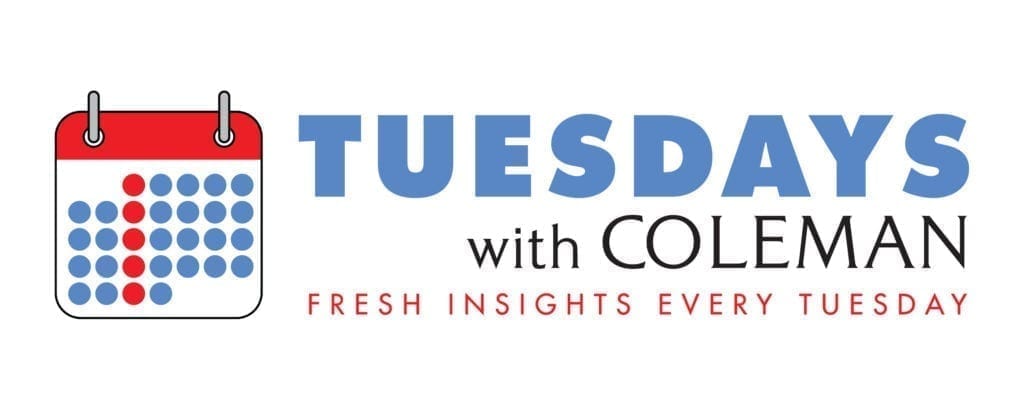
It’s debate season!!! Where presidential and vice-presidential candidates face off in a public forum! Issues! Moderators! More back-and-forth neck action than a tennis match!
I love a good debate. I was captain of the debate team in high school (no, no one is surprised by that). My first solid memories of politics are from the 1988 Democratic debates and lately I even find myself dropping that classic from 1992, “Who am I? Why am I here?” (Admiral Stockdale, you are kind of missed…) Debates are great for raising awareness, hearing directly from candidates, and creating cultural reference points.
And debates are great for radio. It’s a real shame that television leads as a debate medium, because the elements TV adds can be distracting. We start to focus on hair, clothing, and, as recent events show, plexiglass and insects. If you’re shying away from covering a debate—about anything, not just The Big Race—on your station, stream, or podcast because you think people are only interested in watching people argue, I urge you to think again.
Television rocked the debate world (such as it is) in 1960 during the presidential campaign. You know the story: Nixon debates Kennedy, and it’s the start of a new era. Kennedy looks young and fresh and tan while Nixon looks weak and sweaty (poor man was running a fever and had just left the hospital after being very ill with an infection). And in that moment Kennedy became a shining, unbeatable political star, poised and handsome, while then-vice president Nixon lost a lot of his political momentum.
Well, that’s not the whole story for radio listeners. In 1960, television was widely available in quite a few homes, but radio still played a big part in the consumption of news and major events.
There is a persistent myth that radio listeners either thought the two did an equally good job or they gave the win to Nixon, while TV viewers thought Kennedy had won. According to this article, the legend about the TV/radio disconnect was based on a survey of 2100 respondents, only 282 of whom listened to the debates on the radio. So the “conventional wisdom” that Kennedy trounced Nixon on TV and Nixon carried the day on radio isn’t really accurate.
But don’t let that deter you. Let’s note that in 2003 a political scientist conducted a study and concluded that TV viewers judged the participants on their personalities alone while radio listeners judged “on both issues and personality.” And Lyndon Johnson thought Jack Kennedy lost the debate—he listened to it on the radio.
TV, for all its wonderful characteristics, is built on distractions. What does the set look like? What is Senator Harris wearing? What color is President Trump’s tie? Whose makeup is messed up? What is up with those weird split screens, which wouldn’t be so weird if the candidates weren’t standing in front of the Declaration of Independence—which is a great document, but it’s, you know, made of words. Words do not a good TV set make, my friends.
But radio… now, there’s a medium for the imagination and for focus. Listeners can focus on what they’re saying, how they’re saying it, why they’re saying it. There is no audience to get a glimpse of. No errant fly to draw attention from the issues at hand. We can imagine our favorite candidate looking especially good, even if he or she suffers from a crooked tie or a weirdly placed lapel pin. We can listen closely to plans around policy and opinions on issues.
Lest you think I’m only referring to big national debates between candidates for major national office, I urge you to think beyond that. Local races can also reap the benefits of reaching radio listeners. Issues affecting your local audience are just as important. Why not bring people into your studio to debate a hot or critical concern for the community you serve?
There are other, more practical advantages to airing debates on the radio. According to Nielsen’s Ballot Box Breakdown, radio reaches 95% of Hispanic Americans and 91% of Black Americans—huge numbers, especially when you consider that Hispanic Americans spend less time watching TV than Black or White Americans. And think of the advertising! Radio is, after all, this country’s #1 reach medium. Engaged listeners are great targets.
Since 1960, we have become so accustomed to television that we have forgotten the beauty and benefits of listening to and discussing political events on the radio. Image is everything, right? But when we’re choosing our leaders or wondering how we should vote on an important issue, do we care more about a tan and a good haircut… or about intelligent discussion of the issues we find most important?
For the next debate? Lead them to the radio before you send them to the polls.
